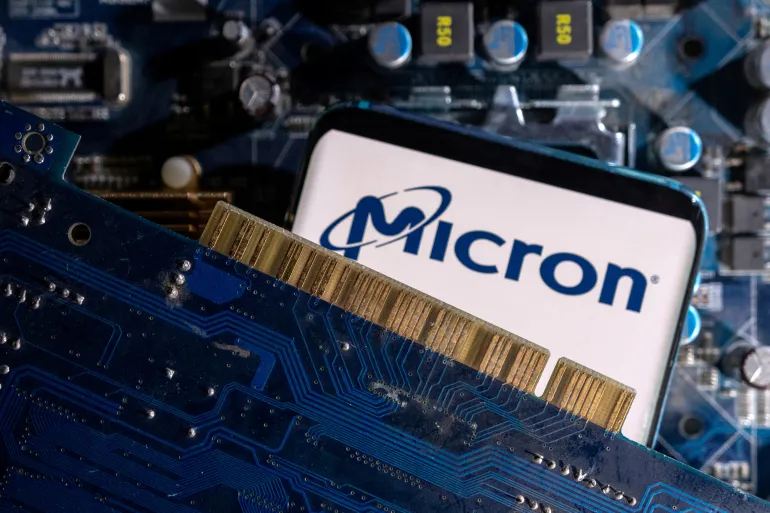China bars operators from buying chips from US tech firm Micron

China bans US chipmaker Micron days after the G7 members launched veiled criticism of China’s trade practices.

China’s cyberspace regulator says the products made by US memory chipmaker Micron Technology Inc have failed its network security review and it would bar operators of key infrastructure from making purchases from the company.
The decision, announced on Sunday amid a dispute over chip technology between Washington and Beijing, could include sectors ranging from telecoms to transport and finance, according to China’s broad definition of critical information infrastructure.
“The review found that Micron’s products have serious network security risks, which pose significant security risks to China’s critical information infrastructure supply chain, affecting China’s national security,” the Cyberspace Administration of China (CAC) said in a statement.
Frosty relations
Micron is the first US chipmaker to be targeted by Beijing after a series of export controls by Washington on certain US components and chipmaking tools to block them from being used to advance China’s military capabilities.
Micron said it had received the CAC’s notice of the conclusion of its review of the company’s products sold in China and looked “forward to continuing to engage in discussions with Chinese authorities”.
The CAC neither provided details on what risks it had found nor what Micron products would be affected.
The move comes amid worsening relations between Washington and Beijing over a range of issues, including trade, the status of Taiwan, China’s claims in the disputed South China Sea and an ongoing US push against growing Chinese influence in the Pacific.
Will the US and China go to war over Taiwan?
It also follows a recent statement by the G7 to “de-risk, not decouple” economic engagement with China and as US President Joe Biden called for an “open hotline” between the two countries.
China’s foreign ministry rejected the statement as an example of interference in its internal affairs and said it had complained to Japan, the host of the just-concluded G7 summit.
The G7 leaders said in a statement: “The world has encountered a disturbing rise in incidents of economic coercion that seek to exploit economic vulnerabilities and dependencies and undermine the foreign and domestic policies and positions of G7 members as well as partners around the world.”
This comment is widely understood to be referring to China, although it does not name it.
Domestic players benefit from ban
China’s announcement on its Micron review helped boost shares in some local chipmaking-related firms on Monday, as state media reported that domestic players could benefit from the move.
Shares in companies, including Gigadevice Semiconductors, Ingenic Semiconductor, and Shenzhen Kaifa Technology, opened up between 3 percent and 8 percent.
Micron’s top rivals also saw their shares gain, with South Korea’s Samsung Electronics and SK Hynix rising 0.7 percent and 2 percent, respectively, versus a 0.9 percent rise in the broader market.
“As China’s domestic memory suppliers are not competitive in technologies and capacity, China would need to resort to Samsung, SK Hynix, Kioxia, Western Digital or other foreign suppliers as the alternative to Micron,” Bernstein analysts said in a note.
It said Samsung and SK Hynix, which have chip factories in China, may gain more traction with Chinese customers. Both Samsung and SK Hynix had no comment.
However, Jefferies analysts expected a limited effect on Micron as its major customers in China are consumer electronics firms such as smartphone and computer manufacturers, not infrastructure suppliers.







